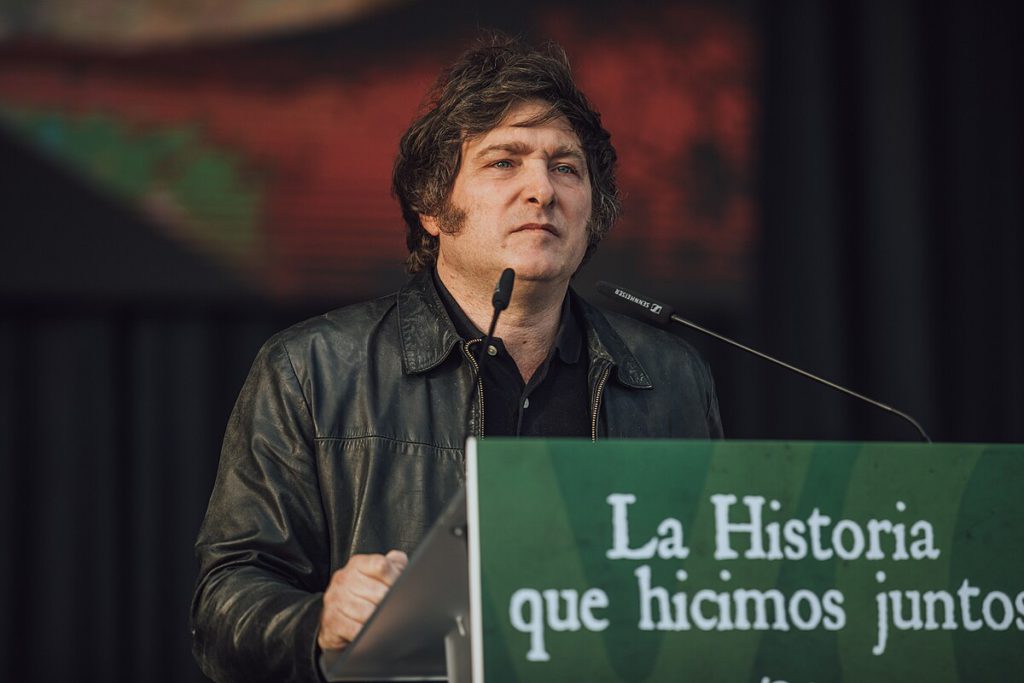Rio Tinto’s $2.5 billion lithium plan is a win for Milei

Rio Tinto Group plans to invest $2.5 billion in a new lithium mine in Argentina in a win for President Javier Milei’s efforts to deregulate the country’s economy and lure foreign investment.
The UK company plans to build a processing plant at the Rincon mine with an annual capacity of 60,000 metric tons of lithium carbonate, it said Thursday in a statement. Work on the facility, subject to permitting, will start in the middle of next year.
Following Milei’s election just over a year ago, Argentine lawmakers approved his marquee incentives program, known by its Spanish acronym RIGI, featuring tax, currency and trade benefits for energy and mining. The measures are enshrined in law for the next 30 years.
“This is a poster child for what should go into RIGI,” Rio chief executive officer Jakob Stausholm, who is set to meet Milei on Friday in Italy, said in an interview. The investor package “doesn’t give you guarantees, but it provides much more protection. It’s very intelligent that Argentina has implemented this.”
Rio has earmarked lithium as a cornerstone of its commodity portfolio, and the investment in Argentina — the world’s fastest-growing producer of the battery metal — follows its agreement in October to buy US miner Arcadium Lithium Plc for about $6.7 billion. The firm is also looking at opportunities in Chile — including the possibility of entering Codelco’s Maricunga project — and wants to build Europe’s biggest lithium mine in Serbia.
The Rincon investment decision was made despite a pullback in lithium prices, with inventories piling up amid a gloomier outlook for electric-vehicle demand. That has led miners in Argentina, including Arcadium, to slow their expansion plans. Stausholm said that Rio wants to reverse the trend and accelerate Arcadium’s projects, while extra production from Rincon is set to arrive on the market in 2028.
Rincon is located in Argentina’s Andean salt flats, part of South America’s “lithium triangle” that’s home to more than half of global resources. Rio acquired the asset more than two years ago for about $800 million, and recently began operating a 3,000-ton starter plant at the site. Rincon will become one of the first commercial-scale projects to use so-called direct extraction methods, touted as being friendlier to the environment.
The technology should conserve the vast amount of water used in traditional lithium extraction, reduce waste, and support consistency in lithium output, according to RBC Capital Markets LLC analyst Kaan Peker.
“Given the preliminary and novel nature of the project, there are significant risks: namely, we call out technology, which could have knock-on implications for capex, cost and project ramp-up,” Peker said in a note Friday.
This year, companies including France’s Eramet SA and South Korea’s Posco Holdings Inc. have brought lithium plants online in Argentina, some of the country’s first new capacity in almost a decade.
International investors are also trying to dig Argentina’s first major copper pits. Rio has exposure to the country’s copper riches through a stake held by its Nuton venture in Los Azules, which recently passed a key permitting step and must now raise funds to build the mine.
“We are equally keen on copper in Argentina and wouldn’t mind doing more,” Stausholm said. “But we’re already quite a big investor in Los Azules, so let’s make sure we get things done there as well as we have laid out.”
(By Jonathan Gilbert and James Attwood)
{{ commodity.name }}
{{ post.title }}
{{ post.date }}




2 Comments
Anthony J Hartnell
You gotta love Miles……get rid of corrupt government ministries and oversight committees and the investments will start to flow!
Shelly Raye Gibson
Excited to see Rio Tinto’s investment in lithium! This is a significant step towards sustainable mining and energy solutions. Looking forward to more updates on the processing plant at Rincon.